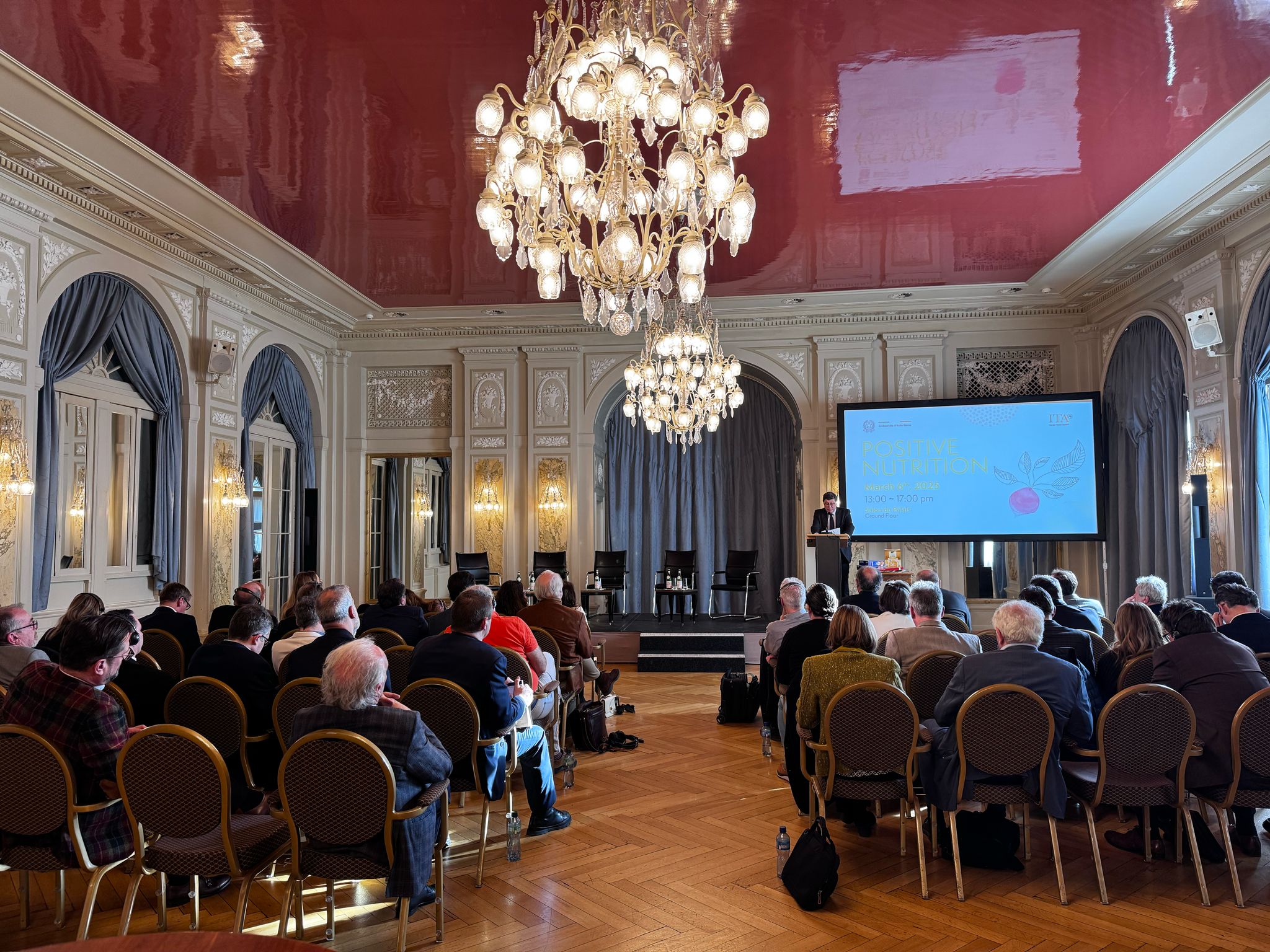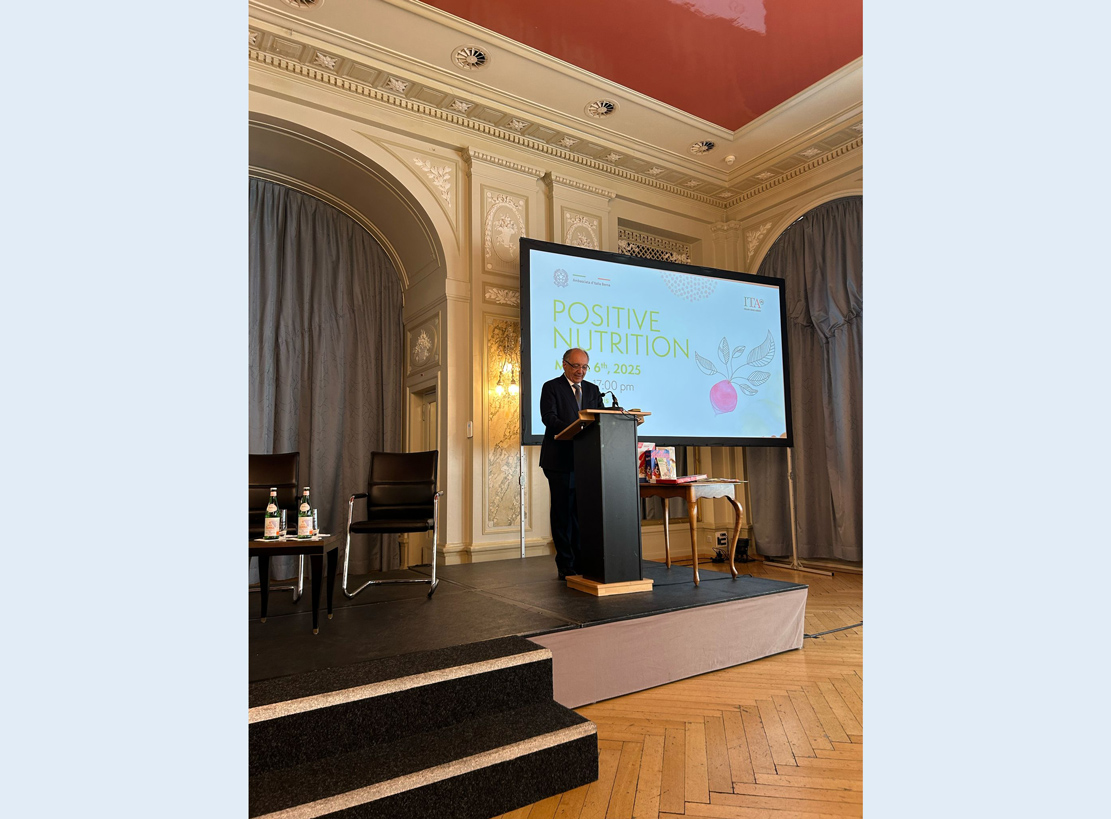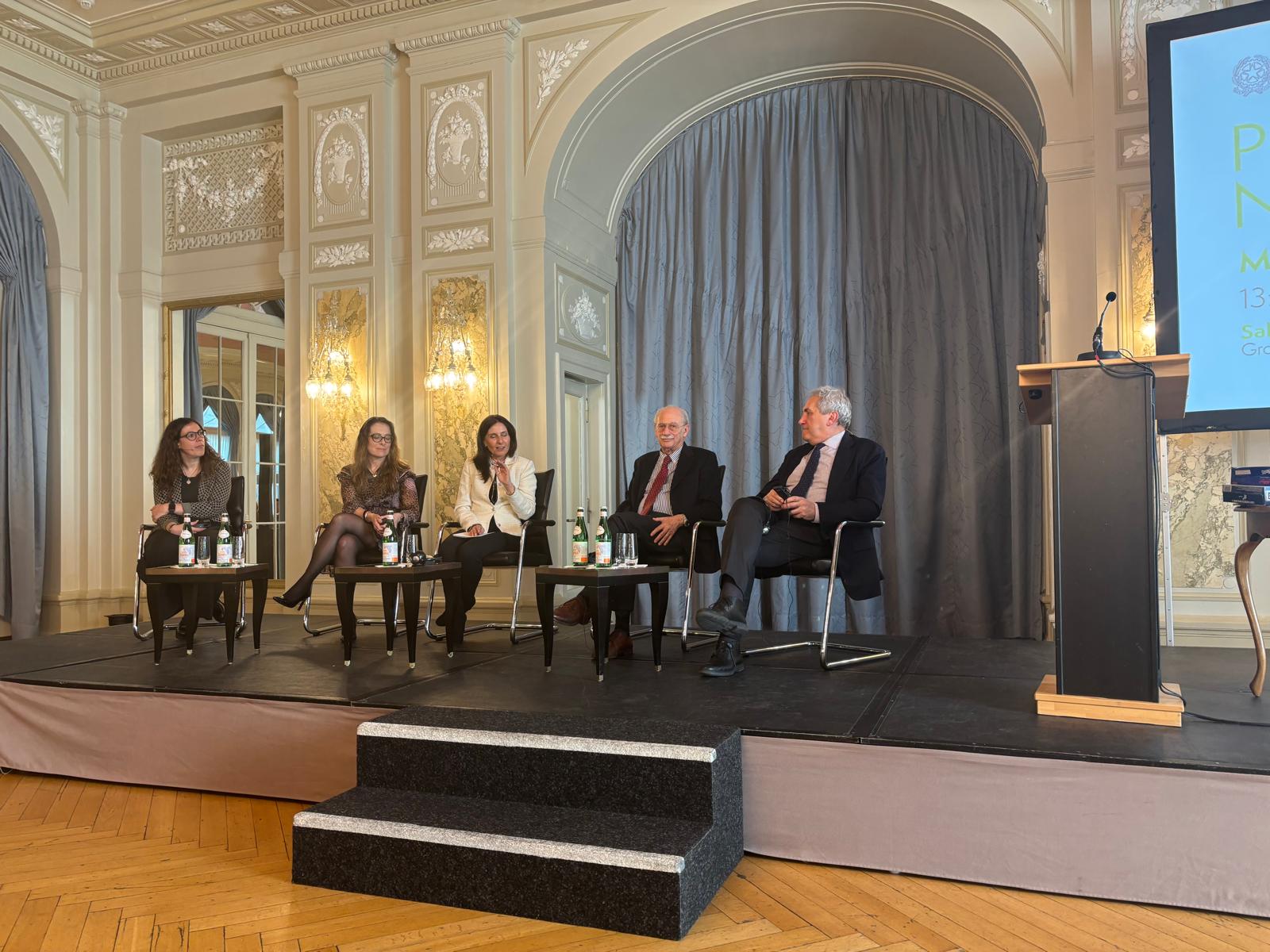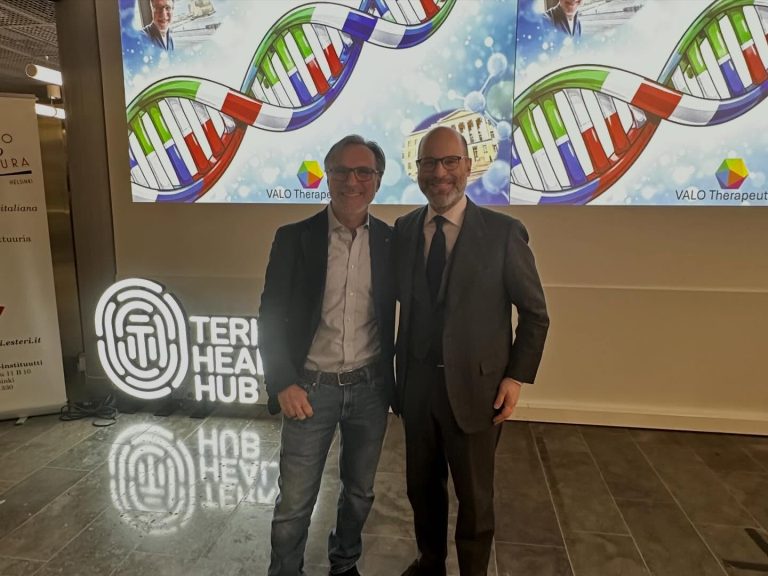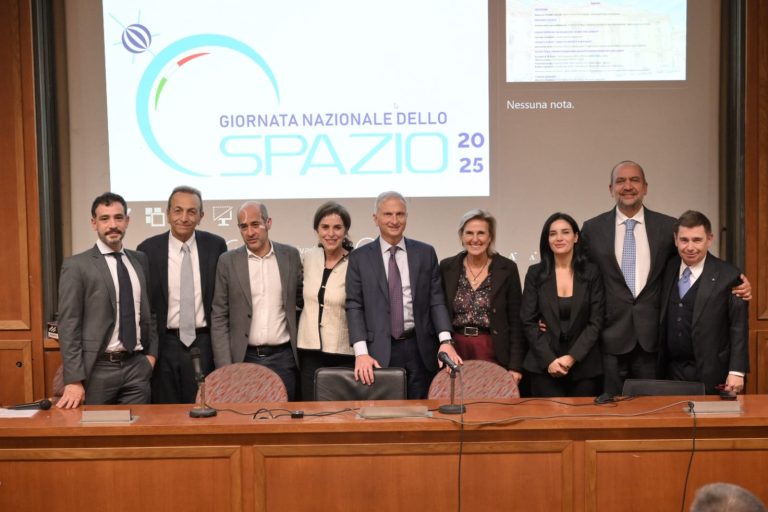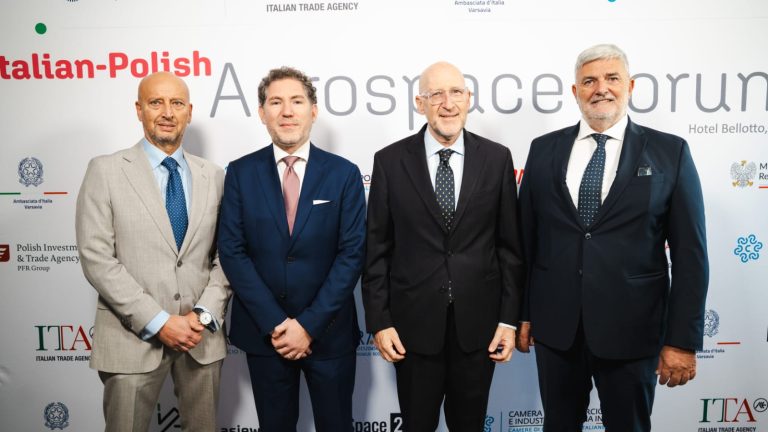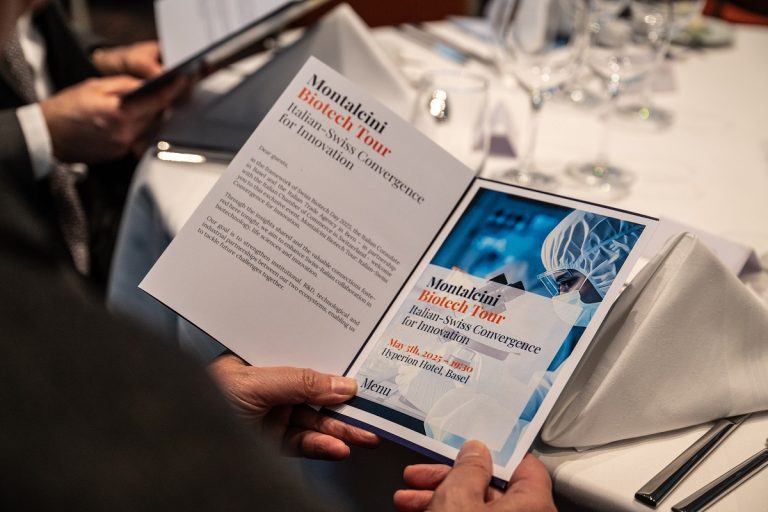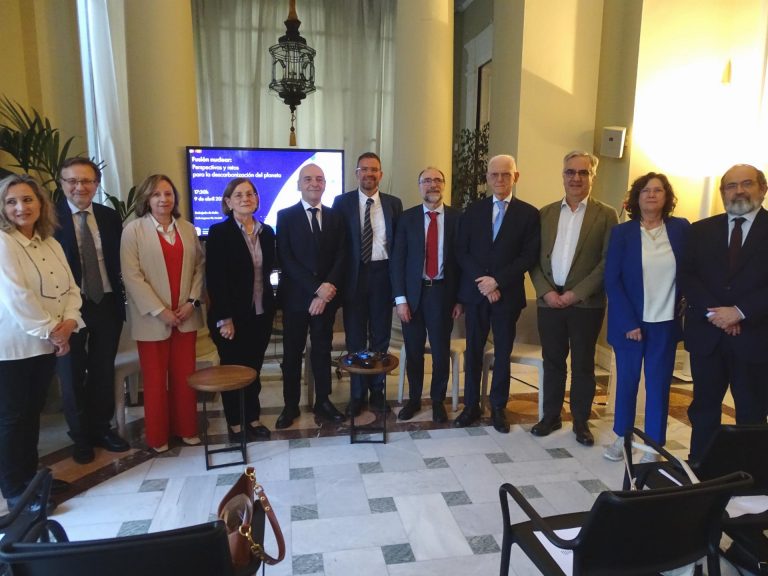On 6 March, an event was held in Bern highlighting the importance of providing consumers with accurate information so that they can better manage their diet.
Sharing a meal is a gratifying and engaging experience, combining taste, social interaction, culture, tradition, and well-being. It should not be reduced to a mere calculation of calories and nutrients, nor should consumers be discouraged with warning labels or negative messages. This was the key takeaway from the “Positive Nutrition” conference, organised by the Italian Embassy in Switzerland and Italian Trade Agency in Bern, and hosted at the Bellevue Palace in Bern. The event focused on the NutrInform Battery, an innovative labelling system designed to provide clear and transparent information about food and beverages, indicating recommended portion sizes as well as calorie, salt, sugar, and fat content to help people maintain a balanced diet. Unlike other labelling systems, NutrInform does not seek to discourage consumers from eating certain foods, but instead encourages an overall balanced dietary approach.
The conference, moderated by Roberta Re, Director of Cambridge Food Science, began with remarks from the Italian Ambassador to Switzerland, Gian Lorenzo Cornado. He emphasised the importance of accuracy and transparency in dietary information campaigns, stating that the NutrInform Battery provides objective data rather than arbitrary interpretations: “Unlike the Nutri-Score and other traffic light labelling systems, NutrInform Battery does not demonise any food, since every food can be part of a balanced diet when consumed in the right portions and frequencies. I extend my sincere gratitude to the Meloni Government, Minister Tajani, and Minister Lollobrigida for their commitment to promoting accurate information and rejecting any form of food product denigration.”
The topic of dietary balance was also addressed by Professor Michele Carruba, Honorary President of the Centre for the Study and Research on Obesity at the University of Milan (CSRO), who stated: “The Mediterranean diet is not just a list of tasty foods rich in high-quality nutrients, but it is a true lifestyle. It promotes a balance between food intake, energy consumption, physical activity, social interaction, and mental well-being. This balance, however, is an individual condition. Public health policies, the Professor concluded, and many diet plans fail to combat obesity because they adopt a ‘one-size-fits-all’ approach, ignoring individual diversity and imposing rigid models.”
Senator Mauro Poggia, former head of the Department of Security, Employment, and Health of Geneva, also contributed to the debate. Expressing scepticism about policies that discourage the consumption of certain nutrients, Poggia noted that “obesity is a multifactorial issue,” stating: “Diet is certainly one factor, but an individual’s genetics, metabolism, lifestyle, psychological well-being, and socio-cultural and religious contexts also play a key role.” Senator Poggia was particularly impressed by the NutrInform Battery approach, as compared to Nutri-Score, praising its objectivity and resistance to manipulation. He also noted that NutrInform better reflects modern needs, when compared to static product labels, which he described as ‘obsolete’.
Italian Trade Agency Director in Bern, Samuele Porsia, remarked: “This event was particularly significant, as it provided an opportunity to engage with a highly qualified audience, comprised of representatives from the agri-food sector, nutritionists, and local professionals. It was a valuable moment to highlight the importance of the Mediterranean diet and the dedicated efforts to promote it worldwide.”
Daniela Martini, Associate Professor at the University of Milan, presented the NutrInform Battery and its mobile application, explaining the rationale behind its design: “Front-of-pack labelling should guide consumers towards informed choices without running the risk of misleading them.” She pointed out that the Nutriscore has often confused consumers, whereas: “The NutrInform Battery seeks to educate consumers on ‘building’ their own diet, considering portion sizes as a fundamental aspect of a balanced dietary model.”
Lorenzo Donini, Tenured Professor of Food Science and Human Nutrition of the Faculty of Medicine at Sapienza University of Rome, criticised restriction-based nutrition policies, stating: “Asking people to completely avoid certain foods has never worked. We need to shift the focus from individual nutrients to dietary patterns and healthy lifestyles if we truly want to bring about meaningful and lasting changes.” According to Donini, ‘Positive Nutrition’ is the best approach, “because it promotes greater consumption of foods of the Mediterranean diet and enhances education on a healthier lifestyle.”
Biologist and nutritionist Tatiana Gaudimonte reinforced this idea by adding: “food is not just the sum of certain micronutrients—it carries culture, emotions, and traditions. To genuinely promote healthier eating habits, we must start with people’s daily routines, provide clear guidance, and ensure access to nutritious and practical choices.”
Also taking part in the event were: Giorgio Fonio, Swiss National Councillor; Philippe Ankers, Director of International Affairs, USAV; Manfred Ruthsatz, Executive Director of Nutrition and Health Care, EPFL.

